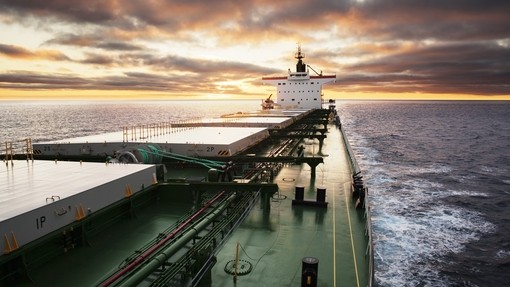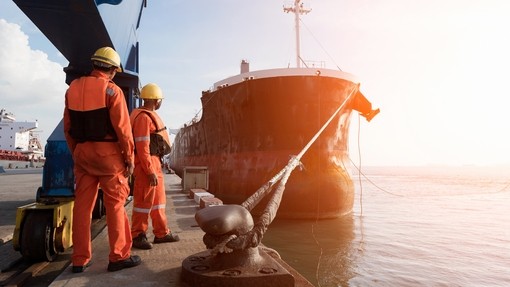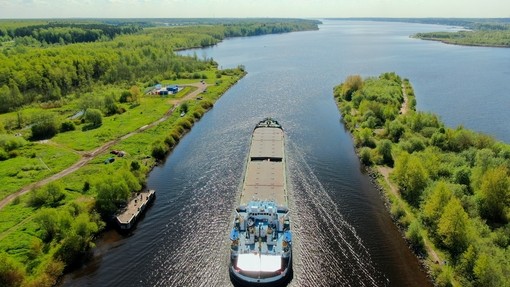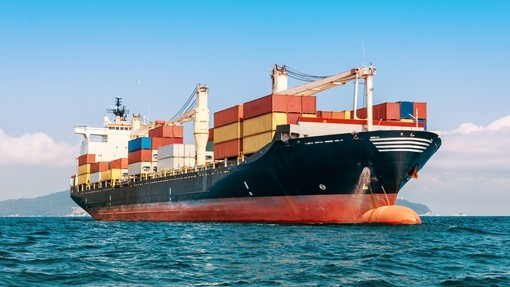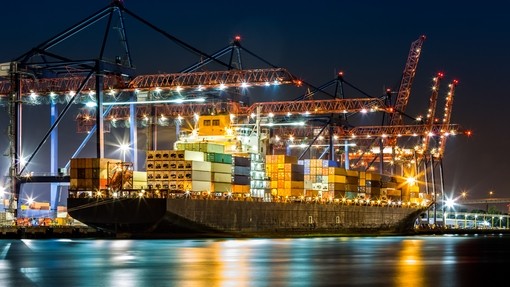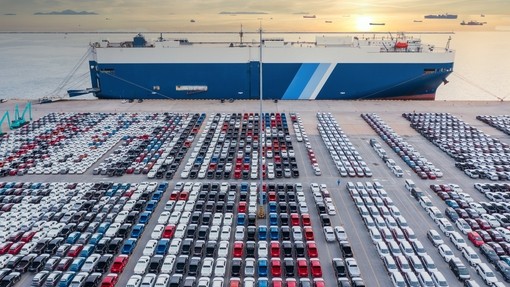Globalink Transportation and Logistics Worldwide LLP -v- DHL Project & Chartering Limited [2019] EWHC 225 (Comm)
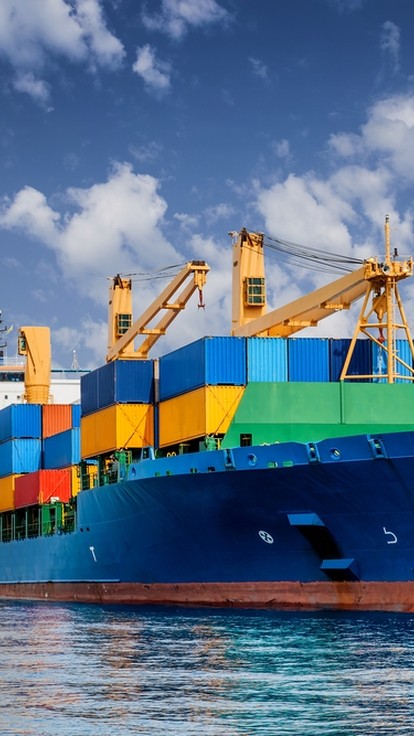
Details
This claim involved an application for summary judgment by the claimant, Globalink Transportation and Logistics Worldwide LLP (‘Globalink’). The defendant, DHL Project & Chartering Limited (‘DHL’) admitted Globalink’s claim but contended that it had a cross claim of greater value which, if successful, would provide a full defence to Globalink’s claim by way of set-off.
The Commercial Court was asked to consider the scope of the long-established rule laid out in the case of The “ARIES” [1977] 1 WLR 185 (HL) (the “ARIES”), precluding the set-off against freight and, in particular whether this rule extends to freight forwarding contracts.
Factual background
In 2014, DHL was engaged by one of its construction clients to arrange the transport of various units of plant material from China to a refinery near Atyrau, Kazakhstan. DHL organised for all the units to be shipped by sea from China to Novorossiyk in Russia. There, DHL and Globalink agreed via a contract (entitled ‘freight-forwarding services contract’) dated 10 September 2014 (the ‘Agreement’) for 14 of the heaviest units to be loaded onto two barges and (eventually) to be towed up the Ural-Caspian Canal to Atyrau River Port. The units would then be unloaded and taken to the refinery by road.
Clause 1.1 of the Agreement provided that the forwarding agent (Globalink) would carry out or arrange the forwarding services of the client (DHL)’s cargo for remuneration and at the cost of the client.
Of the 14 units, 10 were loaded onto barge named “ARK-1” and the remaining four units onto barge “SPA-2”. “ARK-1” arrived in Atyrau on 29 October 2014, which was within the 22-24 day period permitted by the Agreement. “SPA-2”, however, made slow progress and only reached the mouth of the Ural-Caspian Canal on the 15 November 2014. On arrival, “SPA-2” was unable to proceed to Atyrau, because the water levels of the canal were too low for the draught of the loaded barge.
The parties met on 17 November 2014 to decide how best to proceed. According to the ‘protocol of the meeting’, signed by both parties, it was decided that the units would be unloaded from “SPA-2” and the lightest of the four would be transported to Atyrau via road. It was agreed that the three heavier units (the ‘Remaining Units’) would be carried to Atyrau on the canal. Unfortunately, on 23 November 2014, the Ural-Caspian Canal closed for the winter. As such, it was decided that the Remaining Units would be stored in Kuryk for the winter before heading to Atyrau when the canal re-opened in the spring of 2015.
The parties signed a supplemental agreement on 27 April 2015 (the ‘Supplemental Agreement’) in respect of arranging transport for the Remaining Units to Atyrau. Although there was discussion about the inclusion of a clause requiring DHL to indemnify Globalink against claims arising from ‘a force majeure event’ that had been discussed on 17 November, such a clause was not included in the Supplemental Agreement. In fact, in the end, the parties agreed to include an express reservation of their rights under the Agreement.
The Remaining Units arrived in Atyrau in accordance with the Supplemental Agreement.
The claim
Globalink’s claim was for USD 1,647,780 relating to two payments, which fell due once all of the units, had been delivered to Atyrau and charges incurred by Globalink in respect of storage of the Remaining Units in Kuryk. DHL relied on a counterclaim against Globalink for failing to perform the Agreement, the loss suffered said to be the difference between the cost of transporting the cargo under the Agreement and DHL’s actual liability to Globalink amounting to USD 2,364,976.05.
On 9 February 2018, Globalink made an application for summary judgment in respect of these payments. DHL admitted Globalink’s claim, but contended that it had a counterclaim of greater value, which would serve to extinguish the entirety of Globalink’s claim, by way of set-off. Globalink conversely argued that, as this was a claim for freight, the rule of law which said that a carrier’s claim for freight must be paid without set-off should apply.
Legal issues
There were two main issues for the Commercial Court to decide, namely whether:
- DHL’s counterclaim had at least a reasonable prospect of success; and
- DHL’s counterclaim could operate (given the no set-off rule) as a defence to the claim.
1. The counterclaim’s prospects of success
Under CPR 24.2, the court might give summary judgment if:
- The defendant had no reasonable prospect of successfully defending the claim; and
- There was no other compelling reason why the defendant should be allowed to defend the claim.
DHL argued that the slow progress of “SPA-2” prior to 15 November 2014 was the reason that it was unable to proceed up the Ural-Caspian Canal in good time. Alternatively, DHL averred that Globalink failed to exercise reasonable skill and care in arranging the transportation of cargo and avoiding circumstances that could adversely affect the timely delivery of the cargo by reference to Globalink’s technical advisers’ report. In both cases, DHL contended that the inability of the barges to proceed up the canal was a direct consequence of Globalink’s breach of its obligations under the Agreement.
Globalink argued that the low water levels in the canal constituted a force majeure event under the Agreement. Globalink also relied on the use of the word ‘decided’ in the ‘protocol of the meeting’ of 17 November 2014 to treat the low water levels as an event of force majeure. It was Globalink’s case that this protocol was a contractually binding document. As an alternative argument, Globalink put forward that DHL forewent any right to argue that Globalink failed to fulfil its obligations under the Agreement when it signed the Supplemental Agreement, which superseded the original delivery obligations.
These points were refuted by DHL: it argued that the canal’s low water levels did not fall under the definition of force majeure in the Agreement. DHL said that the low water levels were not only foreseeable, but also “SPA-2”’s inability to proceed up the canal was a direct consequence of its failure to make timely progress in arriving at the canal mouth. Furthermore, the ‘protocol of the meeting’ did not have the typical appearance of a contractual document (the document was headed with ‘agenda’) and should not be treated as such. DHL also referred to the Supplemental Agreement, which expressly reserved the parties’ rights under the Agreement. Therefore, Globalink’s argument that DHL no longer had the right to make a claim under the original Agreement was incorrect.
Globalink also submitted that it could limit its liability to 5% of the total cost of the services under the Agreement, whereas DHL disputed that clause was applicable in the circumstances.
Nicholas Vinehall QC sitting as judge held that DHL’s counterclaim was arguable and that it exceeded the low threshold of having a reasonable prospect of success at trial. It was doubtful whether force majeure could provide any answer to DHL’s claim: DHL’s criticism was that Globalink failed to plan for contingency of a force majeure event, not a criticism that a force majeure event happened. It was also doubtful that any limitation of right applied. The points made by the parties seemed to be amply arguable both ways.
Therefore, the judge would have to dismiss the application unless, in his view, defence by way of set-off was unavailable to DHL.
2. The availability of set-off
The second and more substantive question for the judge to consider was whether the defence by way of set-off was available to DHL. As this was a summary judgment application, the judge was only required to consider whether there was a reasonable prospect of the defence being available, but he decided to ‘grasp the nettle’ and finally decide the set-off question.
Globalink’s first argument that the cross claim was not sufficiently connected with the claim was hopeless, given that the cross claim arose out of the same contract as the main claim and was therefore intimately connected to it.
The second argument was that Globalink’s claim was for freight and consequently, the rule in the “ARIES” precluded deduction by way of set-off. In the “ARIES”, Lord Wilberforce stated that the fact that ‘a claim in respect of cargo cannot be asserted by way of deduction from the freight, is a long established rule in English law’. Although accepting that the rule could be said to be arbitrary, Lord Wilberforce continued that legal certainty was a ‘decisive reason…why this House should not alter the rule”.
The rule as set out and affirmed in the “ARIES” had since both been extended in terms of the type of carriage to which it applied and in terms of the type of cross claim which it covered. However, its operation had also been limited to apply to only some forms of carriage.
In relation to a voyage charter, it was now clear that the rule was not confined to cases where the charterer’s claim was in respect of loss or damage to cargo, but extended also, for example, to cross claims for damages for failure to prosecute the voyage with utmost despatch.
The rule applied also to international carriage by road and, also to carriage of goods by road domestically. Most recently it was decided, as a preliminary issue, that the rule extended to airfreight.
The rule did not, however, apply to all costs incurred in achieving the carriage of goods from one place to another. In the “NANFRI” [1978] QB 927 the Court of Appeal by a majority had to resolve conflicting lines of first instance authority as to whether or not the no set off rule extended to hire payable under a time charter. They decided that it did not (given that ‘freight’ and ‘hire’ were treated as different concepts).
DHL’s counter-argument was that the Agreement was not a contract of carriage; therefore the no set-off rule could not apply. Additionally, there was no reason to extend the rule to apply to freight-forwarding contracts.
Counsel for DHL did concede the principle laid down in the case of Britannia Distribution -v- Factor Pace [1998] 2 Lloyds Rep 420 (‘the Britannia’), that if and to the extent that a freight forwarder had acted as agent in entering into a contract of carriage with a carrier and the carrier charged freight, then the forwarder was entitled to claim the sums due from his principal and the principal had to pay without deduction. However, DHL argued that in this case Globalink had not identified any sums that it contended were freight.
The judge noted that the starting point was to consider the nature of the contract between the parties. The judge determined that the Agreement was not a contract of carriage, but a freight forwarding contract. This was because the primary obligation placed on Globalink was not to carry the goods themselves necessarily, but to ‘procure that carriage was achieved by others’.
There was no doubt that a freight forwarder might on occasion be a carrier and having taken on an obligation to arrange carriage, it was open to fulfil the carriage obligation itself – but even that would not convert the contract to arrange into a contract of carriage.
It followed that if the no set-off rule were to apply in that case, it would represent an extension of the rule as it stood, to include freight forwarders. In his view, there was no justification for such an extension. He said that, ‘the rule in the “ARIES” does not extend, and should not be extended to cover services provided by a freight forwarding agent, when those services are to arrange the carriage of goods’.
Consequently, summary judgment was refused. However, in light of the Britannia, if and insofar as Globalink could show that it had paid freight to a carrier and that was a payment falling within the “ARIES” rule, then DHL was obliged to reimburse Globalink for that freight without set-off. The judge identified that $113,000 of Globalink’s claim was potentially freight payable to the carrier, despite the fact that Globalink had produced no proof regarding these payments and made a conditional order that DHL pay the sum into the court, pending final decision at trial, rather than deciding the point summarily at this stage.
Discussion
Despite the fact that Globalink was described as a forwarding agent in the contract, it is questionable whether that description was correct, when taking account of the contract as a whole. The judge in this case emphasised that the services were to ‘arrange’ carriage, but this wording would not have prevented Globalink acting as the principal carrier.
This judgment demonstrates that careful consideration should be used when agreeing the wording of forwarding contracts. The parties should set out their relative positions in the terms of the contract, to avoid protracted arguments about the scope of the services provided and their relative contractual roles. As the judge noted, it is of course open to freight forwarders to seek to contract on the express basis that there may be no set-off against the sums they charge; but that is a choice for the parties to make, not something which the law imposes.
This article originally appeared in the March 2019 edition of shipping case digest. Other articles include:
Silverburn Shipping (IOM) Ltd -v- Ark Shipping Co LLC (THE M/V “ARCTIC”) [2019] EWHC 376 (Comm)

